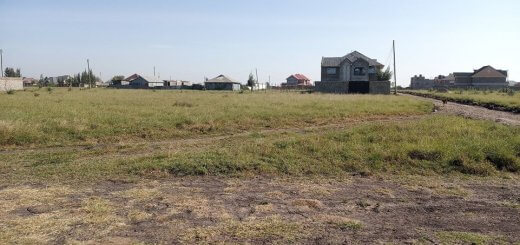Navigating Property Succession in Kenya: An Overview of the Laws and Regulations for a Super Smooth Transition in 2023

Property Succession in Kenya
Introduction

Property succession in Kenya refers to the process by which an individual’s property is distributed upon their death. This can include real estate, personal property, and financial assets. Understanding the laws and regulations surrounding property succession in Kenya is important for anyone who owns property in the country or is considering purchasing property there.
Introduction to Property Succession in Kenya
In Kenya, property succession is governed by a combination of statutory law and customary law. Statutory law refers to the laws enacted by the government, while customary law refers to the traditional practices and customs of the various tribes that make up the country.
Under statutory law, the primary source of guidance on property succession is the Succession Act, which outlines the rights and responsibilities of heirs and the process for distributing an individual’s property after their death. Customary law, on the other hand, varies from tribe to tribe and is typically applied in cases where the deceased did not leave a will or where there is a dispute among heirs.
It is important to note that property succession in Kenya is a complex and sometimes contentious process. Therefore, it is advisable to seek legal guidance when dealing with property succession matters to ensure that your rights and interests are protected.
Types of Property Succession in Kenya
There are two main types of property succession in Kenya: testamentary succession and intestate succession.
Testamentary Succession
Testamentary succession refers to the process of distributing an individual’s property according to the provisions of their will. A will is a legal document in which an individual specifies how they wish their property to be distributed after their death. In Kenya, a will must be in writing and must be signed by the testator (the individual making the will) in the presence of two witnesses.
The process of testamentary succession begins when the will is presented to the court for probate, which is the legal process of proving the authenticity of the will. If the court determines that the will is valid, it will be admitted to probate and the provisions of the will will be followed in distributing the deceased’s property.
Intestate Succession
Intestate succession refers to the process of distributing an individual’s property when they die without a will, or when their will is deemed invalid by the court. In such cases, the property is distributed according to the laws of intestate succession set out in the Succession Act.
Under the Succession Act, the first step in the intestate succession process is to determine the heirs of the deceased. The Act provides a hierarchy of heirs, starting with the spouse and children of the deceased, followed by the parents, siblings, and extended family members. If the deceased has no living relatives, their property will be distributed to the state.
Once the heirs have been determined, the property is divided among them according to their share of the inheritance as specified in the Act. For example, the spouse is entitled to a share of one-half of the deceased’s property, while the children are entitled to a share of the remaining half, divided equally among them.

Property Succession and Customary Law in Kenya
In Kenya, customary law is often applied in cases where the deceased did not leave a will or where there is a dispute among heirs regarding the distribution of the deceased’s property. Customary law varies from tribe to tribe and is based on the traditional practices and customs of the particular tribe.
Customary law can be complex and may not always be in line with statutory law. For example, under customary law, women may not have the same inheritance rights as men and may be excluded from the inheritance process altogether.
It is important to note that customary law is not always recognized by the courts in Kenya and may not be enforceable in cases of property succession. In such cases, the provisions of the Succession Act will take precedence over customary law.
However, in some instances, customary law may be used to supplement the provisions of the Succession Act, particularly in cases where the deceased was a member of a tribe that follows customary law. In such cases, the court may consider the customary practices and traditions of the tribe in determining the distribution of the deceased’s property.
Disputing Property Succession in Kenya
Disputes over property succession in Kenya are not uncommon, and can arise for a variety of reasons, such as disputes over the authenticity of a will, disagreements over the distribution of the deceased’s property, or disputes between statutory and customary law.
If a dispute arises over property succession in Kenya, the parties involved can seek legal recourse through the courts. The court will consider all relevant evidence and apply the relevant laws to determine the rightful distribution of the deceased’s property.
It is important to note that property succession disputes can be costly and time-consuming, and can have a significant impact on the distribution of the deceased’s property. Therefore, it is advisable to seek legal guidance and to try to resolve any disputes amicably, if possible.
Conclusion
Understanding the laws and regulations surrounding property succession in Kenya is important for anyone who owns property in the country or is considering purchasing property there. Property succession in Kenya is a complex process that is governed by a combination of statutory law and customary law, and can be contentious at times. Seeking legal guidance and trying to resolve any disputes amicably can help to ensure that your rights and interests are protected during the property succession process.



